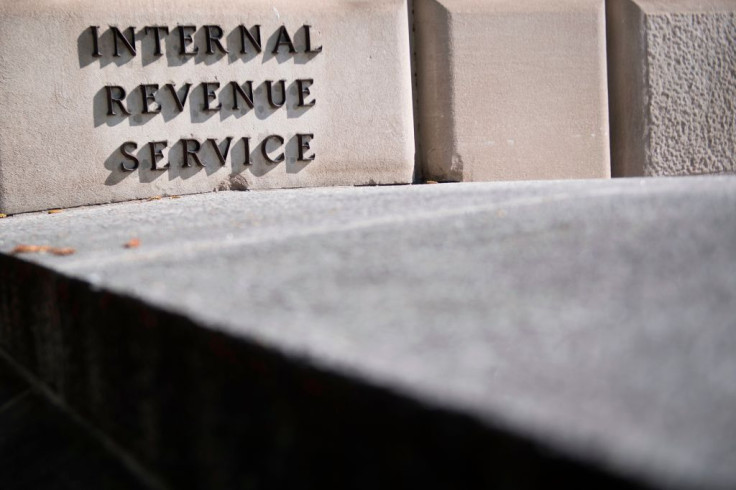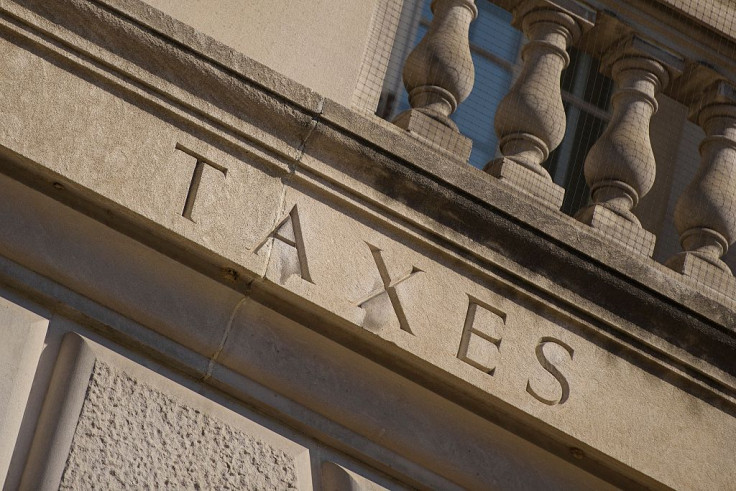Why The IRS Just Cut Taxpayers Some Slack

It's almost tax time again, and many taxpayers are looking forward to seeing whether the tax reform measures that took effect at the beginning of 2018 will save them money. With all the changes that taxpayers will have to deal with when they start preparing their tax returns in the coming weeks, the last thing anyone wants to see is an unexpected tax penalty.
The IRS recently gave nervous taxpayers some relief on that front, making changes to a penalty provision that could potentially affect those who failed to have enough money withheld from their paychecks to cover their 2018 federal income tax liability. The waiver of underpayment penalties in some circumstances could be especially helpful given the confusion early in 2018 surrounding the official withholding tables that the IRS provided to employers -- and could avoid what would likely be an uproar among unsuspecting taxpayers who could have suffered as a result.
How the underpayment penalty works
The IRS likes to collect tax revenue throughout the year, and rather than having people wait until they file their tax returns, the tax agency has multiple ways of having taxpayers make payments on a more regular basis. For the vast majority of people who are employees, employer withholding of federal income taxes is adequate to cover all federal income tax. Much of the time, withholding results in too much tax being taken out, which in turn leads to the sizable tax refunds that many taxpayers receive.
Those who rely primarily on other types of income generally have to pay estimated taxeson a quarterly basis. That includes self-employed individuals as well as retirees who get a substantial amount of taxable income from investments and other sources.
If you don't pay enough of your taxes using one of these two methods, then you'll run the risk of having to pay the underpayment penalty. The penalty amount varies from year to year, but it's based on prevailing interest rates. Essentially, the penalty is designed to reimburse the IRS for your having effectively paid your taxes late, charging a rate that's close to what you might have paid if you'd taken out a loan to make tax payments in a more timely manner.
What the IRS did to lessen the penalty
The IRS has always given taxpayers some leeway in underpaying tax without owing a penalty. If your ending tax bill on your return is less than $1,000, then no penalty applies. In addition, if you've paid at least 90% of your tax for the year either through withholding or timely estimated tax payments, then there won't be a penalty.
The latest action from the IRS centers on that 90% requirement. For purposes of waiving the penalty, the IRS reduced that 90% figure to 85%. That'll give you a bit more room to have underpaid your taxes without facing the penalty.
IRS Commissioner Chuck Rettig explained the move. "We realize there were many changes that affected people last year," Rettig said, "and this penalty waiver will help taxpayers who inadvertently didn't have enough tax withheld."
Some tax commentators noted that the move might have come in response to some early-year changes to tax withholding tables that might have exacerbated the underpayment problem for some taxpayers. As soon as practicable after tax reform took effect, the IRS released new tax withholding tables for employers to follow. Yet there were some secondary impacts of tax reform that the withholding tables didn't entirely take into account, and that might have resulted in more taxpayers having too little tax withheld.

Another way to escape penalties
The IRS move leaves unchanged another way that taxpayers can avoid paying a penalty. Regardless of what you owe for the 2018 tax year, most taxpayers can escape the underpayment penalty if they show their withholding and estimated payments were at least 100% of their tax bill for the 2017 tax year. Those whose income exceeds $150,000 have a higher threshold of 110% of their previous-year tax bill.
That exception allows those who see a big, unexpected jump in their tax liability not to have to pay a penalty on top of it. That prevents adding insult to the injury of the higher taxes themselves.
How to handle your taxes for 2019
The IRS waiver is a one-time break, though, so if it turns out that you needed this break to avoid paying a penalty this year, make sure to take care of the problem early in 2019 so it doesn't come up again this time next year. Whether you boost your withholding or start paying quarterly estimates, it's not hard to take steps that will keep you from ever having to pay penalties to the IRS.
This article originally appeared in the Motley Fool.





















